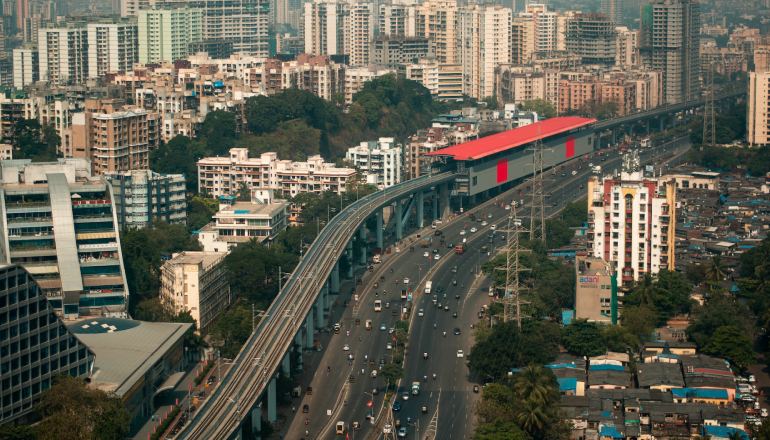It is time that urban planners across municipal corporations in India are made accountable.
The high and mighty, who, I presume, document the checks and balances that infrastructure developers follow before issuing permissions, are sadly lacking in follow-up action once construction begins.
As expected, Of course, the blame game begins.
On the other hand, the concerned residents celebrated a wee bit of heavy rains in Mumbai in the last week of September and a couple of days in October. Days after the monsoon retreated, we are seeing a spike in temperatures to the levels of summer.
No, I am not buying the argument that ‘it is October heat’ because the air quality in the city has also dropped to dangerous levels.
While we are suffering from scorching heat and dropping AQI, some parts of the country are fighting floods — Northeast and Kerala, for example. The floods and the heat can be directly connected to climate change and its subsequent impact. The AQI, I would say, is more man-made.
We speak about Delhi fighting smog and AQI issues during winter every year. Surprisingly, for more than a week or so, Mumbai’s AQI has been parallel to or worse than that of the national capital. At almost 300, AQI is adversely affecting people’s health.
There are some pertinent questions to which only the authorities can respond. Please spare us the cliché.
1. Where are our town planners?
2. How can the local body permit developments that are choking the existing infrastructure? Undoubtedly, these recommendations should come from the town planners. Town planners have a critical role to play when it comes to pollution control.
3. Do the authorities empanel the PCB before issuing NOCs?
Globally, many countries implement developments in line with their climate mitigation plans. It appears we need to catch up. When other countries can do it, WHY NOT INDIA?
Through unplanned or under-supervised constructions, the developers are flouting all norms. As a result, excess emission comprising harmful/ waste mixes with the air, water, and soil. Undoubtedly, it all contributes to the increasing pollution and, thus, increase in temperatures.
An article in today’s leading newspaper highlights some of the critical issues in urban development. It is based on a study conducted by Janaagraha—a think tank. The report titled Annual Survey of India’s City Systems says a) 40% of the capital cities in India lack master plan. That means there is no active plan in place. b) 26 out of the 36 cities have no sectoral plan.
I remember many Indian states making rainwater harvesting mandatory to get required permissions for new buildings. But how many of them are strictly implementing it? Does anyone follow the pollution control rules on a construction site?
It is high time the local body administration pulls up the town planners and relooks at the norms they follow currently. Above all, the administration should focus on sustainable practices leading to sustainable living. That requires a significant contribution from the town planners, who are the first to get a copy of the comprehensive plan —- infrastructure, connectivity, sanitation, water, and pollution control.
The usual laments of lack of manpower, budget provisions, etc., must be addressed with vigor. The town planners should work in tandem to make our cities/ towns and villages liveable and sustainable.

